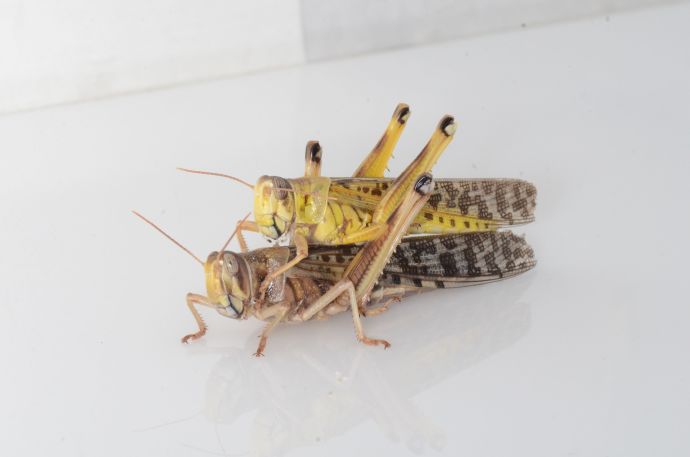Science rather than Divine province might have caused the biblical locust plague that engulfed Egypt in around 1400 B.C.E, according to a team of Tel Aviv University (TAU) researchers.
PhD student Omer Lavy, a student in Prof. Amir Ayali’s lab in TAU’s School of Zoology, together with several colleagues, sought to figure out if locusts’ microbiomes (gut bacteria) could play a role in their aggregation behavior— a major cause of famine from ancient times until the present.
They characterized the gut bacteria of “gregarious” or swarming locusts before and after they aggregated. They found that bacteria called Weissella, almost completely absent from the microbiome of solitary locusts, becomes dominant when the host joins a group.
The study was published in Environmental Microbiology.

“Locust swarms that decimate all crops in their path have been a major cause of famine from biblical times to the present,” said Ayali. “Over the last three years, large parts of Africa, India and Pakistan have been hard-hit by locust outbreaks, and climate change is expected to exacerbate the problem even further. Locust swarms form when individual locusts, usually solitary and harmless, aggregate and begin to migrate. However, the causes for this behavior remain largely unknown, and an effective solution is yet to be found.”
Lavy said there is a well-known connection between the gut and the brain in many species, including humans, hence the reason they decided to examine the locusts’ gut microbiomes in their lab. They found that the change in Weissella bacteria levels occurred when a solitary locust joined a large group of about 200 others.
They then developed a mathematical model that was used for analyzing the conditions under which induction of locust aggregation produces significant evolutionary advantages for Weissella, allowing these bacteria to spread to numerous other hosts, a release explained.
The researchers said the results suggest “a high probability that the bacteria play an important role in inducing this behavior—a new hypothesis never previously proposed,” said Ayali.
There are still locust plagues happening all the time in Africa and Sub-Saharan Africa, Lavy said. The United Nations monitors the insects and warns communities when an eruption may be forthcoming.
“We hope that this new understanding will drive the development of new means for combating locust outbreaks,” concluded Ayali.
